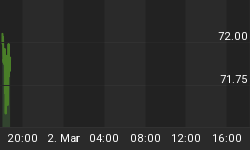With banks under massive pressure to slash costs associated with the production of research on stocks and bonds in Europe, it’s artificial intelligence (AI) to the rescue, with Germany’s $525-billion Commerzbank leading the way with a new content-automation partnership.
For Germany’s second-largest bank, it’s a major expenditure on research, with a partner, Retresco, that hopes to help it churn out AI-generated research reports and replace the human element in analyst notes.
The AI product hasn’t been fine-tuned yet, but investors will be interested to learn that it’s already advanced enough to provide around 75 percent of what a human equity analyst would give an investor when writing an immediate report on quarterly earnings.
Presumably, AI is more objective, too—and that’s where the idea of investor protection comes into play.
But equity reports reviewing quarterly earnings, says Michael Spitz, Commerzbank’s head of research, have common reporting standards, so the parameters are easy to plug in to AI, the Financial Times reported.
So while this area “is showing promise”, says Spitz, more complicated analyst notes are still futuristic.
Once we can replace the human element entirely in analyst notes—for reports that don’t have common parameters—we may have taken a frightening step into a future where AI has entirely too much control, objective or not.
Commerzbank’s foray into AI for analyst research was spurred in part by a January 2018 investor protection measure implemented by the European Union—MiFID II. Related: Cheap Credit Could Lead To A New Economic Depression
MiFID II was designed to provide investors with more protection by making financial markets “more efficient, resilient and transparent”.
While it’s been around since 2007, it was tweaked in January with new reporting requirements and tests that “will increase the amount of information available and reduce the use of dark pools and OTC trading”.
But it’s also about competition for Commerzbank because the race is now on to roll out AI among the big players in the finance industry.
JPMorgan Chase has a $10.8-billion tech budget for the year, with $5 billion set aside for new investments, and AI is going to be a big one.
JPMorgan’s treasury services division handles an average of $5 trillion daily in everything from payroll and remittances to multi-billion-dollar merger checks, and now it’s planning to bring AI into this game full-on.
The company's tech budget for the year is $10.8 billion, with $5 billion set aside for new investments.
Right now, it’s teaching its machines about its clients, Westworld fashion, so AI can start anticipating their questions and needs. This week, it’s set to broaden those client trials and then it should be made available to more companies next year. And the company roster is an impressive one, with everything from Honeywell to Facebook.
“We are always exploring ways to offer our clients faster, better and simpler ways to do business with us," Co-President and Co-Chief Operating Officer Daniel Pinto said in his April letter to shareholders, as reported by CNBC. "The banks that don't invest will lose ground and will have a long, difficult catchup process."
Bank of America has also made its AI debut with an intelligent virtual assistant (Erica), who leverages “predictive analytics and cognitive messaging” to provide financial guidance to over 45 million customers.
Related: Trade War Or Not, These Chinese Tech Unicorns Are Going Public
The AI game is on, and the only question is “who will be left behind?”
Some 90,000 jobs in asset management (out of a total of 300,000) could disappear by 2025 thanks to AI, according to estimates by consultancy Opimas.
According to IDC, worldwide spending on AI will reach $19.1 billion this year--an increase of 54.2 percent over the prior 12-month period. By 2021, organizations will spend $52.2 billion on AI, a compound annual growth rate (CAGR) of 46.2 percent.
Right now, retail is the biggest spender on AI, but banking is not far behind.
By Damir Kaletovic for Safehaven.com
More Top Reads From Safehaven.com:
















